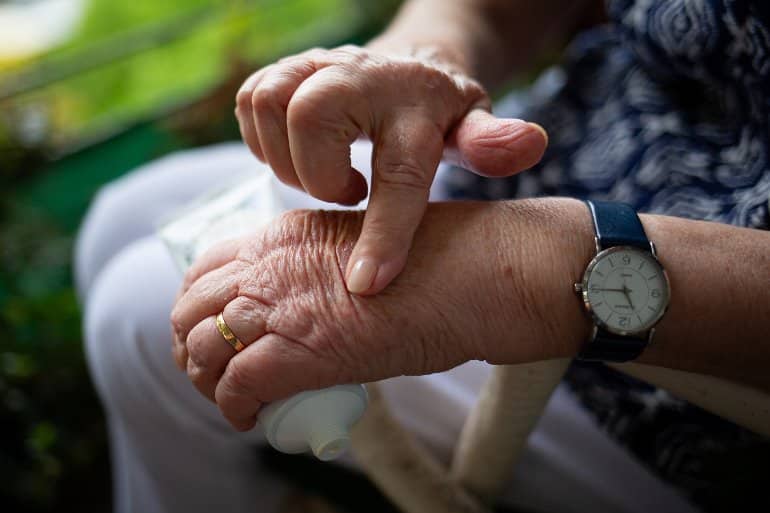Summary: Study reveals gender-specific differences in the dopamine-regulated signaling pathways in B-cells, concluding dopamine may have a pro-inflammatory effect in female rheumatoid arthritis patients.
Source: IfADo
Rheumatoid arthritis (RA) is an autoimmune disease characterized by chronic joint inflammation that leads to functional impairment in many sufferers. There are gender-specific differences in the emergence and development of this disease.
Researchers at the Leibniz Research Center for Working Environment and Human Factors in Dortmund (IfADo) have therefore examined the role of the neurotransmitter dopamine in rheumatoid arthritis with particular reference to gender differences.
The results point to gender-specific differences in the dopamine-regulated signaling pathway in B cells, whereby dopamine may even have a pro-inflammatory effect in women.
Prof. Dr. Silvia Capellino’s group has identified involvement of the dopamine-regulated signaling pathway in B cells. This influence on immune cells of RA patients is gender-specific.
The observed bifurcation of the dopamine-regulated signaling pathway between male and female RA patients can be used for therapeutic approaches in women in the future.

The influence of dopamine on certain cells of the immune system and thus on the course and development of rheumatoid arthritis discovered in the studies correlated with the duration of the disease and the functional disability in female RA patients.
Based on these findings now published in Scientific Reports, a diagnostic marker can be used in women.
Dopamine influences immunity
Women get rheumatoid arthritis more often than men. Not only the frequency, but also the progression of the disease differs between men and women.
One possible explanation for this is the different role of sex hormones in immune reactions. Estrogens can directly influence the immune system and usually lead to inflammation.
The immune system can be influenced by the nervous system and neurotransmitters. Dopamine is a neurotransmitter that plays important roles not only in the brain but throughout the body.
Recent findings show that the signaling pathways controlled by dopamine also play a key role in changing immunity.
It is therefore possible that dopamine not only directly influences the immune system, but also that estrogens can change the signaling pathways controlled by dopamine, which again has an influence on the immune system. How exactly this works is currently being examined in a follow-up project.
About this rheumatoid arthritis research news
Author: Anne Gregory
Source: IfADo
Contact: Anne Gregory – IfADo
Image: The image is in the public domain
Original Research: Open access.
“Dopamine receptor 1 expressing B cells exert a proinflammatory role in female patients with rheumatoid arthritis” by Karolin Wieber et al. Scientific Reports
Abstract
Dopamine receptor 1 expressing B cells exert a proinflammatory role in female patients with rheumatoid arthritis
Rheumatoid arthritis (RA) is a chronic rheumatic disease with a clear sex-bias. Recent data indicated a role for dopamine in RA pathogenesis, while dopaminergic pathways can be modulated by estrogens.
As defined mechanism of action of dopamine on B cell function in RA are unclear, we aimed to elucidate this, with special focus on sex-differences.
Healthy controls (HC, n = 64) and RA patients (n = 61) were recruited. Expression of D1–D5 dopamine receptors (DRs) was investigated by flow cytometry on peripheral blood mononuclear cells (PBMCs). D1-like DRs were stimulated in vitro to assess effects on B cell activation and proliferation.
Secretion of cytokines and dopamine content were measured by ELISA. All DRs were expressed on PBMCs of HC and RA patients. Dopamine content in PBMCs, and frequency of D1DR expressing B cells were significantly higher in RA females (p < 0.001).
Expression of D1DR on RA B cells correlated positively with disease duration and severity only in women. Combined B cell and D1-like DR stimulation induced higher IL-8 and CCL-3 secretion from PBMCs of female RA patients compared to HC.
These results indicate sex-specific differences in dopaminergic pathway in RA, with a proinflammatory feature of the D1DR pathway in women.






